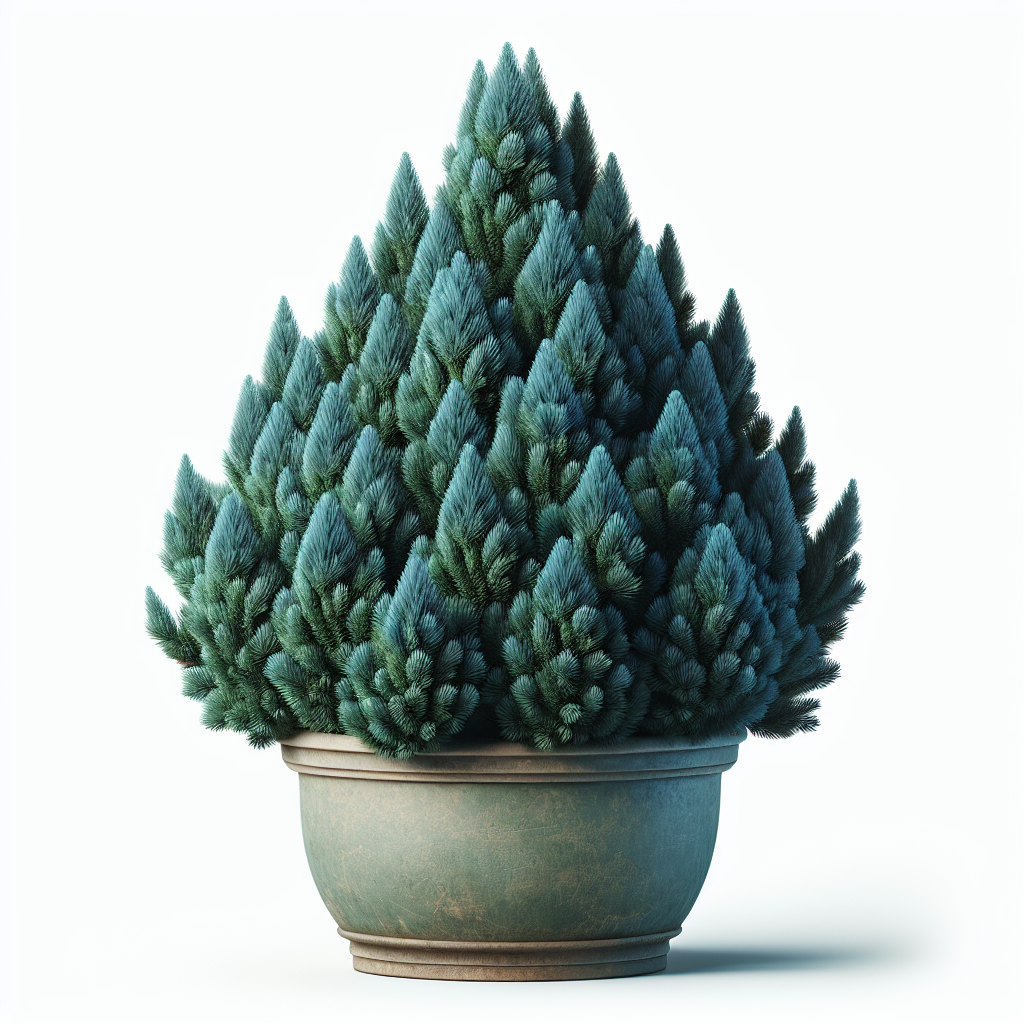Blue Point Juniper: A Thriving Pot Plant
Blue Point Juniper is a popular choice among gardeners looking for a low-maintenance, visually appealing pot plant. With its striking blue-green foliage and dense, upright growth habit, it’s easy to see why this evergreen shrub has become a staple in many gardens and landscapes.
Originating from Japan, the Blue Point Juniper (Juniperus chinensis ‘Blue Point’) is a cultivar of the Chinese juniper that has been specifically bred for its stunning color and compact size. It is known for its hardiness and ability to thrive in a variety of climates, making it an ideal choice for both novice and experienced gardeners alike.
One of the main reasons why Blue Point Junipers are so popular as pot plants is their versatility. These shrubs can be grown in containers of various sizes, making them suitable for patios, balconies, or even indoor spaces. Their narrow, columnar shape also makes them perfect for adding vertical interest to any garden or landscape.
In terms of care requirements, Blue Point Junipers are relatively low-maintenance plants that require very little attention once established. They prefer full sun but can tolerate partial shade, making them adaptable to different light conditions. It’s important to ensure that the soil is well-draining to prevent root rot, as these plants do not like wet feet.
Watering is another crucial aspect of caring for Blue Point Junipers. While they are drought-tolerant once established, they still require regular watering during the hot summer months to keep their roots moist. It’s important not to overwater these plants, as this can lead to root rot and other diseases.
Fertilizing is generally not necessary for Blue Point Junipers, as they are heavy feeders and can thrive in poor soils. However, a slow-release fertilizer applied in early spring can help promote healthy growth and vibrant foliage. Pruning is also recommended to maintain the shape and size of these shrubs, although they have a naturally tidy appearance that requires minimal upkeep.
One of the key benefits of growing Blue Point Junipers in pots is their ability to withstand harsh weather conditions. These shrubs are highly tolerant of heat, drought, wind, and salt spray – making them suitable for coastal gardens or urban environments with poor air quality. Their dense foliage also provides year-round interest and privacy when grown in containers.
In terms of design possibilities, Blue Point Junipers offer endless opportunities for creativity in landscaping. They can be used as standalone specimens or grouped together in clusters to create focal points or borders. Paired with colorful annuals or perennials, these shrubs can add texture and contrast to any garden setting.
For those looking to attract wildlife to their garden, Blue Point Junipers are known to provide shelter and food for birds throughout the year. Their dense branches offer protection from predators while also serving as nesting sites for various bird species. In addition, their berries are a food source for birds during the winter months when other sources may be scarce.
Overall, Blue Point Junipers are an excellent choice for gardeners looking to add beauty and functionality to their outdoor spaces with minimal effort. These versatile shrubs require little maintenance yet offer year-round interest with their vibrant foliage and attractive form. Whether grown in containers or planted directly into the ground, they are sure to make a lasting impression in any garden or landscape setting.
Whether you’re a seasoned gardener or just starting out on your green-thumb journey
With proper care and attention
The vibrant blue-green foliage will continue to thrive year after year
In conclusion
As long as you provide adequate water
Food
And sunlight
Your blue point juniper will reward you with its beauty
Making it an excellent choice for any gardening project.














